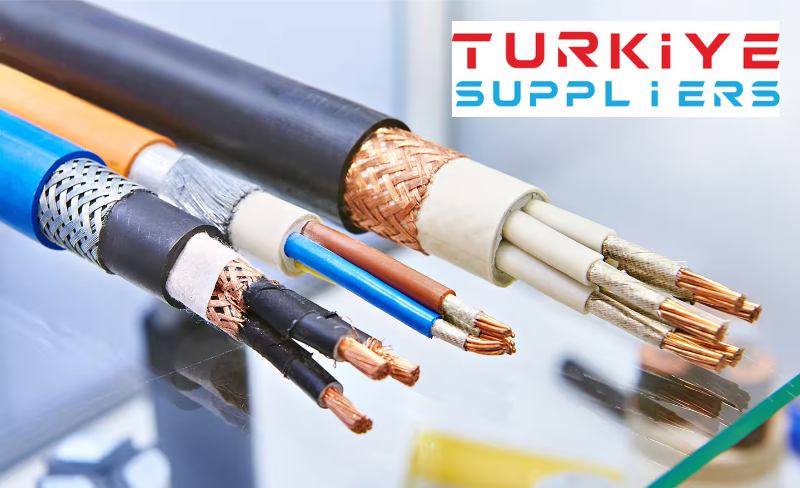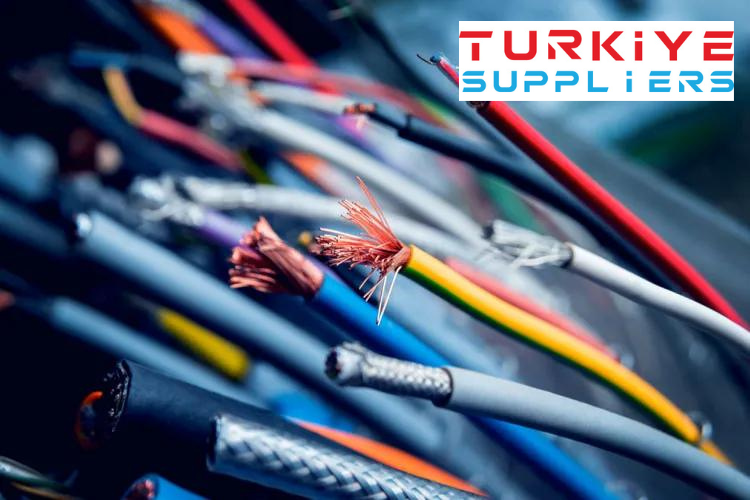Electrical wiring is one of the most critical aspects of modern infrastructure, providing the backbone for electrical systems that power homes, businesses, and industrial facilities. In Turkey, electrical wiring follows a set of national and international standards, ensuring safety, efficiency, and durability. This article offers an in-depth exploration of electrical wiring in Turkey, including the types of materials used, safety regulations, installation techniques, and common challenges. Whether you’re a professional electrician, a homeowner, or someone involved in construction, this guide will provide you with the knowledge you need for top-notch electrical installations.
Understanding Electrical Wiring: The Basics
Electrical wiring involves the installation of conductors, cables, and devices that allow electricity to be safely distributed throughout a building. The wiring must comply with national electrical codes to avoid hazards like short circuits, overloading, and electrical fires. In Turkey, wiring systems are based on the IEC (International Electrotechnical Commission) standards, which govern both low and high-voltage installations.
Key Components of Electrical Wiring Systems
Electrical wiring systems consist of several vital components, including:
- Conductors: Usually made of copper or aluminum, conductors carry electrical currents to power various devices.
- Insulation Materials: Commonly made of PVC or rubber, insulation prevents contact between conductors and protects against electrical shocks.
- Junction Boxes: These are used to house electrical connections safely.
- Switches and Sockets: Switches control the flow of electricity, while sockets provide power points for devices.
you can read more about: Electrical Cables: electrical cables from Turkey
Types of Electrical Wiring Commonly Used in Turkey
In Turkey, various types of wiring methods are employed, depending on the building type, purpose, and voltage levels required. The most commonly used types include:
PVC Insulated Wiring
This is the most frequently used wiring system in homes and commercial buildings. The conductors are insulated with PVC (polyvinyl chloride), which offers excellent durability and flexibility. PVC wiring is suitable for low and medium-voltage applications, and it’s preferred for indoor installations due to its resistance to moisture and fire.
Steel Wire Armored (SWA) Cables
These cables are used in industrial applications where added protection is needed. The conductors are encased in layers of galvanized steel, making them resistant to mechanical damage, impact, and corrosion. SWA cables are ideal for outdoor and underground installations in Turkey, particularly for projects that involve heavy machinery or are located in harsh environmental conditions.
Mineral Insulated Copper-Clad Cables (MICC)
MICC cables are used for high-temperature applications and where fire resistance is a priority. The conductors are surrounded by a copper sheath and insulated by magnesium oxide. These cables are commonly installed in critical infrastructure, such as hospitals and government buildings, where safety is paramount.
Electrical Wiring Standards in Turkey
Turkey’s electrical wiring standards are tightly regulated to ensure the safety and reliability of electrical systems. The country follows both national regulations and IEC standards to maintain consistency with international best practices.
Key Standards to Follow
- TS IEC 60364: This standard provides general requirements for the design, erection, and verification of electrical installations. It ensures that installations are safe for use and meet minimum performance requirements.
- TS EN 50173: Focuses on structured cabling systems for information technology and telecommunications. This standard is important for office buildings, data centers, and other commercial spaces requiring advanced networking.
- TS IEC 61439: This standard governs the construction and performance of low-voltage switchgear and controlgear assemblies.
Compliance with these standards not only guarantees safe electrical systems but also helps in meeting local regulatory requirements for both residential and commercial buildings.
Safety Measures for Electrical Wiring Installations
Ensuring safety during electrical wiring installation is critical for preventing accidents and reducing the risk of electrical fires. The following safety practices are crucial in any wiring project in Turkey:
Proper Grounding
Grounding prevents electrical shocks by directing excess electricity into the earth. All electrical installations in Turkey must be grounded according to the IEC standards, ensuring that systems are safe for use.
Overcurrent Protection
Overcurrent can result in overheating, leading to fires and damage to electrical appliances. Turkey mandates the use of circuit breakers and fuses to protect against overcurrent.
Regular Inspections
Routine inspections are mandatory to ensure that electrical systems remain in good condition. It is essential to check for worn-out cables, loose connections, and malfunctioning devices regularly.
Installation Techniques: Best Practices in Electrical Wiring
Electrical installation requires meticulous planning and execution to ensure long-lasting and safe systems. In Turkey, the following best practices are recommended for electrical wiring installations:
Plan the Layout
Before installing any wiring, create a detailed plan of the electrical system. This plan should include the location of all switches, sockets, junction boxes, and appliances. Careful planning ensures that the wiring system is efficient and meets the building’s electrical needs.
Use Conduits for Protection
Conduits provide physical protection to electrical cables, especially in high-traffic areas or where cables are exposed to mechanical stress. In Turkey, plastic and metal conduits are widely used, depending on the building type and location.
Labeling and Color Coding
Proper labeling and color coding of wires are critical for troubleshooting and maintenance. In Turkey, standardized color codes are used to differentiate between live, neutral, and ground wires, reducing the risk of electrical accidents during future repairs.
Electrical wiring is a fundamental aspect of modern infrastructure, and in Turkey, it is governed by rigorous national and international standards to ensure safety and efficiency. By following best practices in material selection, installation, and safety protocols, you can achieve reliable and durable electrical systems, whether for residential, commercial, or industrial applications.
To ensure that your electrical wiring projects meet all necessary standards and provide long-term safety, always consult with certified professionals and stay up-to-date with the latest regulations.

